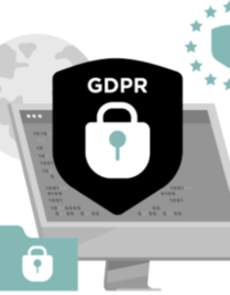AI recruiting bias and how to mitigate unfairness in recruitment
AI is transforming recruitment by streamlining workflows, reducing admin, and helping agencies scale faster. But while the benefits of AI in recruitment are clear, there's a growing challenge that must be addressed: AI recruiting bias.
AI recruiting bias occurs when automated hiring tools produce outcomes that unfairly disadvantage certain groups, often due to biased data or flawed algorithm design. This bias is rarely intentional, but its impact can be significant, limiting access to talent, damaging trust, and undermining DE&I efforts.
In this article, we’ll explore what AI recruiting bias is, where it comes from, and most importantly, how recruiters can identify and reduce bias to create fairer, more inclusive hiring processes.
Understanding how AI recruiting bias happens
AI recruitment bias can show up in several ways. Understanding its root causes is the first step to reducing it.
According to a study from The International Journal of Human Resource Management, three factors play important roles in determining the reliability of the AI-based systems: data, algorithms, and human perception. When your data's messy or incomplete, AI models struggle to make accurate predictions while staying fair, which often results in biased decisions.
The impact of AI recruiting bias
Unchecked bias in AI recruiting tools doesn’t just pose an ethical risk. It creates serious business consequences.
- Legal and reputational risks: Companies found using discriminatory hiring tools could face lawsuits, regulatory investigations, or negative media coverage. Even unintentional bias can result in significant fallout.
- Missed talent and limited innovation: Bias reduces access to a diverse talent pool, which can hinder innovation, problem-solving, and long-term growth. Organisations that fail to attract underrepresented candidates may find themselves falling behind.
- Candidate disengagement: If candidates perceive the hiring process as unfair, they’re less likely to apply again or recommend the company to others — damaging employer brand.
- Poor hiring outcomes: Biased AI may overlook highly qualified candidates, leading to less-than-optimal hires, higher turnover, and additional recruitment costs.
Mitigating AI recruiting bias: 4 strategies for fair recruitment
While AI recruiting bias is a real challenge, it’s not inevitable. With the right strategies in place, agencies can use AI ethically and effectively.
The key is to acknowledge that AI tools are only as fair as the data and decisions behind them. When recruiters understand how AI bias forms, they can proactively monitor, audit, and correct it.
1. Prioritise human oversight
AI should support, not replace, human judgment. Recruiters must review AI-generated shortlists, question anomalies, and apply critical thinking — especially for high-impact or senior roles. Human input remains essential for interpreting nuance and making final decisions.
2. Focus on transparency and explainability
Understanding how AI tools make decisions is essential to identifying and addressing bias. Agencies should demand explainability from vendors — not just accuracy metrics. Transparency with candidates about where and how AI is used also builds trust and ensures legal compliance.
3. Do continuous monitoring and auditing
AI systems should be regularly tested for adverse impact across different demographic groups. This means:
- Running bias audits using diverse test data
- Tracking key metrics like applicant drop-off rates and demographic representation
- Iterating based on findings to reduce disparities
4. Build diverse development teams
Bias in AI often begins with who builds it. Teams with diverse backgrounds, perspectives, and lived experiences are more likely to spot potential blind spots in data, design, and implementation.
Can recruitment software help reduce bias in recruitment?
While unconscious bias is hard to eliminate, smart recruitment software like Access Vincere Evo can help recruiters identify and reduce it at scale.
By flagging language, patterns, or decision points where bias may be creeping in, it helps agencies build inclusive strategies and reach a broader, more representative talent pool.
Like any new technology, AI is capable of good or bad outcome, since it's learning purely from humans.
Our clients have seen results like:
- Up to 70% increase in diversity of candidate pipelines
- Up to 28% more applicants
- Up to 68% increase in female applicants
- 2x more relevant applicants shortlisted
Learn more about our AI recruitment software.
Final thoughts
AI recruitment bias is one of the most important issues facing modern recruitment. Left unaddressed, it can exclude great talent, hurt your reputation, and undermine DE&I progress. But when understood and mitigated, AI becomes a powerful tool for progress.
Recruiters don’t need to abandon AI — they need to use it wisely. With fairness, transparency, and human oversight at the core, AI can help us build hiring processes that are not just faster, but fairer, too.

Explore Vincere Evo, our AI-powered growth engine for recruiters
Recruitment AI resources
Read more about AI in recruitment





